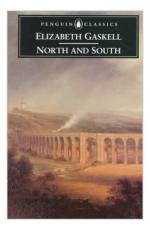Mr. Hale met with several pupils, recommended to him by Mr. Bell, or by the more immediate influence of Mr. Thornton. They were mostly of the age when many boys would be still at school, but, according to the prevalent, and apparently well-founded notions of Milton, to make a lad into a good tradesman he must be caught young, and acclimated to the life of the mill, or office, or warehouse. If he were sent to even the Scotch Universities, he came back unsettled for commercial pursuits; how much more so if he went to Oxford or Cambridge, where he could not be entered till he was eighteen? So most of the manufacturers placed their sons in sucking situations’ at fourteen or fifteen years of age, unsparingly cutting away all off-shoots in the direction of literature or high mental cultivation, in hopes of throwing the whole strength and vigour of the plant into commerce. Still there were some wiser parents; and some young men, who had sense enough to perceive their own deficiencies, and strive to remedy them. Nay, there were a few no longer youths, but men in the prime of life, who had the stern wisdom to acknowledge their own ignorance, and to learn late what they should have learnt early. Mr. Thornton was perhaps the oldest of Mr. Hale’s pupils. He was certainly the favourite. Mr. Hale got into the habit of quoting his opinions so frequently, and with such regard, that it became a little domestic joke to wonder what time, during the hour appointed for instruction, could be given to absolute learning, so much of it appeared to have been spent in conversation.




